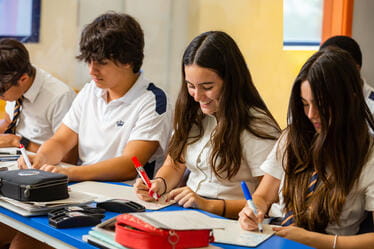We use cookies to improve your online experiences. To learn more and choose your cookies options, please refer to our cookie policy.


Summer has arrived in the southern hemisphere as well as the main rainy season of the year. The hottest season is known as the wettest one, which is to be expected. However, we have noticed that weather events have become more extreme over the years. As a result, many cities, including in Brazil, have suffered the consequences of climate change. For instance, the rains that have been atypically affecting the city of Itabuna, in Bahia, since the beginning of November, continue to generate impressive numbers. On just one day in December, the city of Ilhéus, one of the most affected locations, recorded more rain than accumulated during the entire month of December in 2020 (Inmet). In capitolio, a tourist city of Minas Gerais, the excessive rain made a rock fall in Lagoa de Furnas canyon last month, causing the park closure and economic damage to the city.
Cachoeira river that overflowed in Itabuna, one of dozens of cities in southern Bahia hit by heavy rains in December (Reuters)
Lagoa de Furnas canyon in Capitólio, Minas Gerais, where the rock fell in January
In the context of extreme weather events, our secondary students have engaged in the STEAM challenges in collaboration between Nord Anglia and MIT. This year's challenge theme is Extreme Weather and the students have the opportunity to share ideas with MIT scientists that study climate change events. During term 1, the focus was given to tropical cyclones, which may have disastrous consequences for affected areas and communities. This makes forecasting and communication incredibly important and one of the biggest challenges is dealing with the uncertainty of these predictions.
The students were challenged to imagine themselves as weather forecasters. They were provided with information of a tropical cyclone that was expected to hit a city and only limited data and information was available, so MIT is waiting for further updates as the cyclone approaches. Students worked in groups and were able to develop their projects in the "Save the World with STEAM" ECA. Students from key-stages 3 and 4 were involved.
Rina, from year 9, presenting her weather forecast project
The challenge was to consider how to communicate the cyclone forecasting data to the public whilst knowing there is uncertainty and help people to make the best decisions for themselves and their families. You can watch the full presentations by clicking on the links:
https://drive.google.com/file/d/12Gp18oJVJr6R_gZPMpW3wRfvY_RiYELl/view
https://drive.google.com/file/d/1Srg0aXoiYD_dzs5LH8BSPE1tCPDt_bHE/view
Sebastian (year 10) and Oscar (year 8) explaining the effects of extreme drought
Bringing the STEAM challenges and developing them in after school clubs has given students the chance to reflect on what they have learned in regular science lessons. In term 1, students could make links between the proposed challenge and the content of the science lessons. Our year 9 students explored and discussed issues related to climate change, as well as its causes and consequences, relating them to events of species extinction, migration and the decline of biodiversity. Ethical issues were also explored in the classes, such as the existence of zoos and the maintenance of gene banks. Hence, we see that extracurricular activities can be embedded and assimilated by students in a more fun way, ensuring more effective learning.